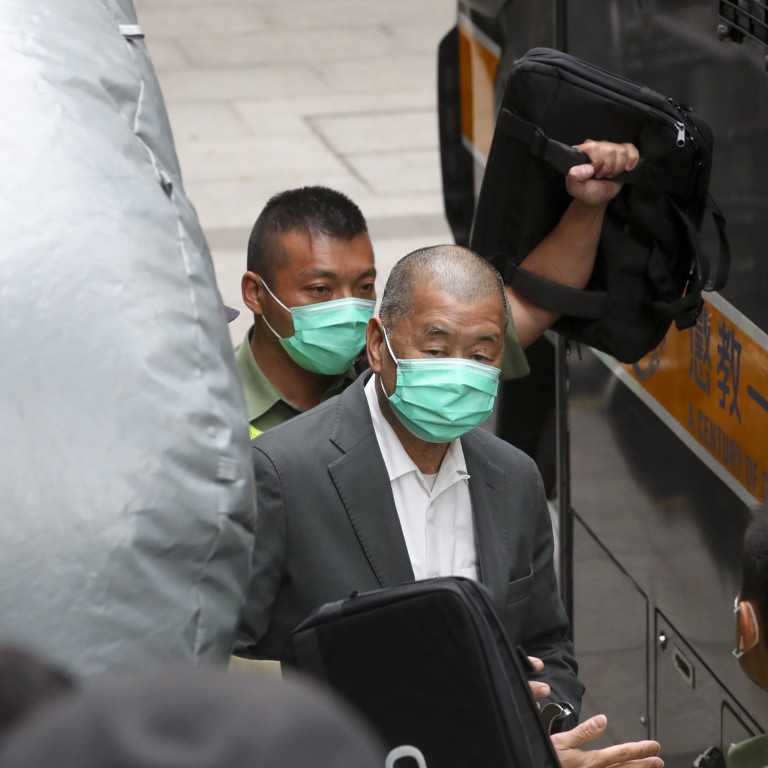
National security law: Jimmy Lai applies for bail once more after Hong Kong’s top court revokes it; new judge to hear request next Thursday
- The Apple Daily founder filed his second application on Wednesday, a day after Court of Final Appeal rescinded a previous judge’s decision to free him
- New bail request will be heard by Court of First Instance Judge Anthea Pang
A legal source said that the 73-year-old founder of Next Digital filed a second application on Wednesday. The request will be heard next Thursday by Court of First Instance Judge Anthea Pang Po-kam, a different jurist than the one whose decision was found to be erroneous by the Court of Final Appeal.
While the top justice at the Court of Final Appeal revoked Lai’s bail on Tuesday, he told him and his legal team they could apply for bail once again to the lower court.
The Post has contacted the Department of Justice seeking official confirmation.
Lai, also the owner of tabloid-style Apple Daily newspaper, was detained in early December and brought to court to face fraud and national security law charges. He is accused of using his newspaper and social media account to collude with foreign forces.
Later that month, his lawyer successfully convinced Court of First Instance Judge Alex Lee Wan-tang to grant him bail under stringent conditions, including a HK$10 million (US$1.29 million) bond, and pledges not to speak to the press or use social media.
But the prosecutors objected, taking Lai back to the top court in January to argue the lower judge had erred in his disregard of the higher bail standard for crimes under the national security law, imposed by Beijing in June, than for other offences.
Jimmy Lai to stay behind bars as top court rules previous judge failed to properly interpret tough new threshold for bail
Having remanded Lai back into custody in January as it deliberated his bail case, the Court of Final Appeal handed down its judgment on Tuesday.
The lower court’s decision to release Lai on bail, the top justices said, was tainted by the judge’s misinterpretation of the nature and effect of the new threshold at a previous security law proceeding, incorrectly believing the legislation had little impact on the normal bail regime under common law.
They also held that in evaluating bail applications in security law proceedings, the judge must first assess whether there were sufficient grounds to believe the defendant would not continue to perform acts that endangered national security, although the judge must not treat the defendant as guilty.
In the far-reaching judgment, the justices also conceded they would have no power to change the national security law, even if it was found incompatible with the Basic Law, the city’s mini-constitution.
Carrie Lam denies interference suggestion, after reportedly meeting chief justice ahead of Jimmy Lai hearing
Judge Pang’s involvement in the new bail hearing indicates she has joined a list of judges designated by Chief Executive Carrie Lam Cheng Yuet-ngor to hear national security law cases. The full list was never revealed by Lam’s office or the judiciary, although at least six magistrates, five Court of Final Appeal justices, and a few more judges from the District Court and High Court are known to be on it after ruling on related cases.
Barrister Anson Wong Yu-yat said Lai’s defeat at the top court did not mean he would not have a shot in getting bail from the lower court again.
He said the Court of Final Appeal merely ruled that the previous judge had applied the wrong test when granting bail, and that Lai would still stand a chance given the harsh conditions he was willing to concede to, from undergoing house arrest to dropping out of social media.
“So long as he can convince the judge that he would not commit any national security law crimes while on bail,” he added.

